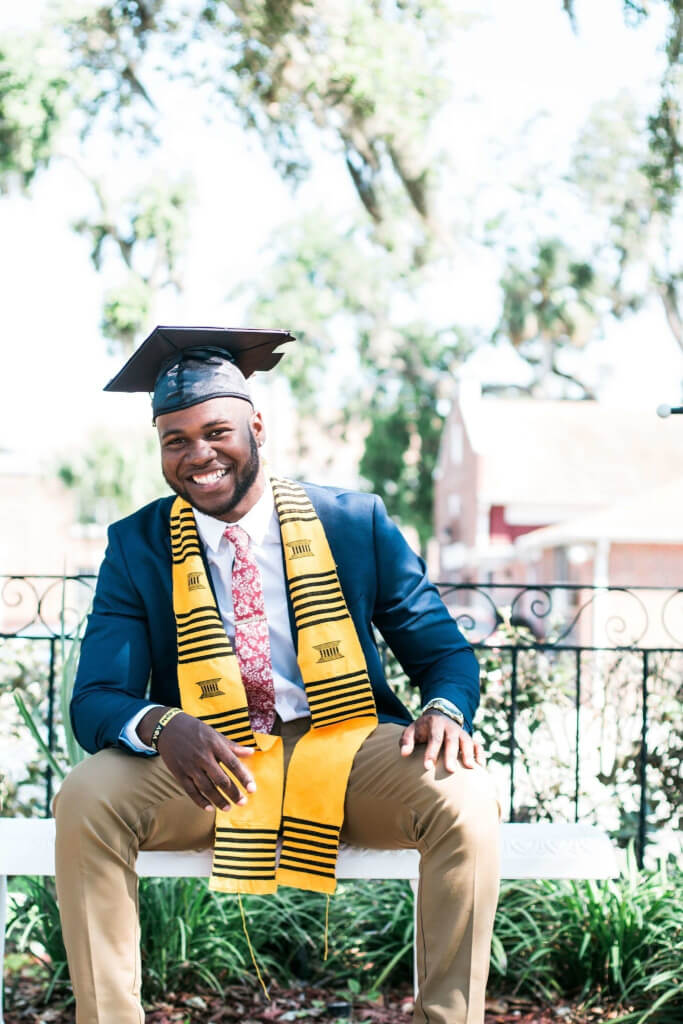Are you dreaming of attending an Ivy League schools abroad? You’re not alone. Every year, thousands of students apply to Ivy League schools in the hopes of getting accepted.
However, Ivy League schools are some of the most prestigious and competitive institutions in the world. They’re known for their low acceptance rates—both for domestic and international students. According to 2022 data, the overall acceptance rate at Harvard University is 4.6%, while for Yale University and Princeton University it’s 6.3% and 5.5% respectively.
That means around 95% of the students that apply to Ivy League schools are rejected. Tough, right?
While these schools are competitive, it’s not impossible for you to gain admission—especially if you’re an exceptional student. With the right preparation and guidance, you can maximize your chances of being among the few students accepted.
We’ll discuss several key strategies to help you increase your chances of earning your degree from an Ivy League university abroad.
Start by Earning Impressive Grades
A high GPA is one of the most important factors admission officers look for when vetting applicants for Ivy League schools.
In 2021, more than 50% of applicants accepted to Ivy League universities had GPA scores of 4.0. If you have a GPA below 3.7, your chances of being admitted at these highly competitive schools drop significantly.
With GPA scores below 3.5, you have to be really outstanding in other areas (and extremely lucky) to gain admission to these prestigious universities abroad.
If you’re currently in high school, aim for the best grades possible in all of your classes. Strive to make the honor roll or dean’s list.
Make a study plan that will help you read and prepare for each exam adequately. It will also help if you know how to take excellent notes in class and when revising on your own.
Take Advanced Classes
While impressive grades play a significant role in gaining admission to Ivy League universities, they’re not enough to guarantee you a spot.
To give yourself a competitive edge, consider taking advanced classes such as Advanced Placement (AP) or International Baccalaureate (IB). Taking these classes will show that you’re a hardworking student who’s willing to challenge themselves.
Additionally, advanced classes will also give you a taste of college-level course-work!
Get Impressive Standardized Test Scores
Ivy League colleges require students to submit scores for standardized tests such as SAT or ACT. To stand a chance of gaining admission, you must have impressive standardized test scores.
You’ll need a score of at least 1560 in SAT to be on par with the bottom 75% accepted to Ivy League schools. Applicants with scores below 1450 are likely to be rejected.
To give you an idea of the SAT scores you need, the table below highlights the SAT scores of the middle 50% of applicants accepted to Ivies (the range of scores from the 25th percentile to the 75th percentile) in 2021.
| School | SAT Middle 50% Scores | Acceptance Rate |
| Brown University | 1480-1560 | 5.5% |
| Columbia University | 1510-1560 | 3.9% |
| Cornell University | 1450-1540 | 8.7% |
| Dartmouth College | 1440-1560* | 6.2% |
| Harvard University | 1460-1580* | 5.0% |
| Princeton University | 1450-1570 | 4.4% |
| University of Pennsylvania | 1490-1560 | 5.9% |
| Yale University | 1460-1580* | 4.6% |
| Average of all Ivy League Schools | 1468-1564 | 5.5% |
What About ACT Scores?
Well, you’ll need scores of 31–35 for Math, 34–36 for English, and 33–35 for the composite ACT to be accepted into an Ivy League school.
Here’s a look at the ACT scores of students accepted into these prestigious institutions:
| School Name | 75% SAT | 25% SAT | 75% ACT | 25% ACT |
| Harvard | 1580 | 1480 | 36 | 33 |
| Princeton | 1560 | 1470 | 35 | 33 |
| Yale | 1560 | 1480 | 35 | 33 |
| Columbia | 1510 | 1340 | 32 | 34 |
| Penn | 1570 | 1480 | 35 | 33 |
| Brown | 1550 | 1470 | 35 | 33 |
| Dartmouth | 1550 | 1450 | 35 | 32 |
| Cornell | 1540 | 1450 | 35 | 33 |
If you’re determined to claim your spot at an Ivy League university, aim to have the highest standardized test scores possible. Your goal should be to attain scores above the average for the school you are applying to
Create a study plan that works for you, and practice, practice, practice! Utilize online resources such as practice tests and online courses to help you prepare.
Make sure to take the test early enough to give yourself time to retake it if necessary. With dedication and hard work, you can reach your goal of achieving impressive scores on the standardized tests.
Don’t Forget Extracurricular Activities
Participating in extracurricular activities is an important part of the admissions process for Ivy League universities abroad. Not only does it demonstrate your commitment to learning and developing your skills, but it also shows that you are an active and engaged student who is willing to take initiative.
Bear in mind that Ivy League schools are mostly interested in extracurricular activities that show your leadership, commitment, personal development, and initiative outside the classroom.
Unfortunately, there’s no perfect combination of extracurricular activities to guarantee you admission into the Ivies. However, some of the best extracurricular activities for students aiming for Ivy League schools include:
- Starting a club in high school (rather than joining one)
- Starting a non-profit in high school
- Political activism
- Being part of student government
- Excellence in chosen sports
- Community service
- Winning academic competitions
- Taking part in competitive summer programs
To prepare yourself to have a good chance of being accepted into Ivy League schools, think strategically about how you select your extracurricular activities in high school.
It’s important to choose activities that you’re truly passionate about. Having 4 extracurricular activities is considered ideal when applying to the Ivies. Go for at least 2 main extracurricular activities that you can devote yourself to fully. Add two minor hobbies to give you a more well-rounded application.
Taking part in extracurricular activities can help you stand out from the crowd and give you a better chance of being accepted into an Ivy League university.
Start the Application Process Early
Starting your application process early is one of the most important steps to increasing your chances of being admitted to an Ivy League university abroad.
Beginning early helps you ensure that all of your materials are in order and that you have ample time to prepare for any tests or interviews required.
Here’s a timeline of what you need to do to prepare yourself for admission into the Ivies.
18 months before the program starts:
- Focus on keeping your grades up
- Research your preferred Ivy League schools
- Register an prepare for standardized tests
- Consider hiring an education abroad consultant
- Reach out to the International Students Offices of your preferred schools
10 to 14 months before the program starts:
- Request all the required forms to apply to your chosen schools
- Prepare for and take standardized tests such as SAT or ACT and English proficiency tests such as TOEFL, and IELTS (if you don’t get great grades, retake the test)
- Obtain academic transcripts from your school
- Identify referees and request them for recommendation letters
- Write your application essay
9 to 10 months before the program starts:
- Start looking for scholarships and loans to finance your studies abroad
- Submit your application in time
- Get your passport in order
3 months before the program starts:
- Apply for your U.S student visa
- Apply for student health insurance
- Finalize travel and accommodation arrangements
Taking the time to plan and prepare your application early can give you an edge over applicants who wait until the last minute to complete their applications.
Write a Compelling Application Essay
Writing a compelling college application essay is crucial for international students who want to earn their degree at Ivy League universities.
Usually, these schools provide essay prompts for each application cycle. While essay prompts differ, they almost always seek to gauge candidates’ personality, passion, leadership qualities, and ability to take initiative.
Here are a few tips to write essays that will make for a strong application:
- Be personal: A college application essay can be technically well-written, but it isn’t personal, it won’t connect with admissions officers for Ivy League schools. Keep the “personal” in personal essay by reflecting on your life experiences. Focus on unique aspects of your background, experience, and goals.
- Avoid using a detached style: More to the point above, avoid using a detached style that doesn’t connect with your audience. You can be creative and funny – but don’t go overboard!
- Ask for help: Writing essays for college applications can be overwhelming. Ask for help from school counselors, study abroad consultants, and mentors. With their experience, they can help you write compelling personal essays to help you get a spot in an Ivy League school.
- Proofread: Simple grammatical, spelling, and punctuation errors can get your Ivy League college application rejected. Make sure to proofread your essay multiple times to ensure it is free of errors.
Get Strong Recommendation Letters
Strong recommendations from teachers and mentors is a key factor in being admitted to Ivy League universities abroad. Recommendation letters provide college admissions officers with a third-party perspective on why you’re an exceptional candidate.
It’s important to cultivate relationships with professors, employers, and mentors who can speak to your academic, professional, and personal strengths.
Most Ivy League schools require candidates to have three recommendation letters: 2 from school teachers, and one from a school counselor. For the teacher recommendations, you should have one letter from Math/Science and another from English/Social Sciences teachers.
Ask for recommendations well in advance (10 months before the program starts). You want to give each recommender ample time to reflect on your achievements and performance. To help them write a great recommendation, provide them with all the information they need such as:
- Your grades
- Awards and prizes you’ve won
- Your academic and career goals
- Extracurricular activities
- Volunteer activities
- A copy of your application essay
- Contact information for the admissions office
- Guidelines for submitting recommendation letters
- Deadline for submitting recommendation letters
Recommendation letters are a huge favor to ask. Be sure to thank each recommender for their time and effort – regardless of the outcome of your applications.
Get Documents to Provide Financial Ability/Need
Some Ivy League schools (Harvard, Yale, Princeton, Dartmouth) have need-blind admissions for all students, including international applicants. That means your financial circumstances won’t be considered in making the admission decision.
However, need-blind admission doesn’t mean that you’ll be able to afford the tuition fees and other expenses once admitted. But don’t worry – several Ivy League schools have full-need financial aid packages for international students.
To request financial aid from U.S schools and gain admission, you have to provide proof of financial circumstances – whether your own or your parents’. Admissions officers will use the documents provided to determine whether you qualify for financial aid.
For Ivy League schools without need-blind admissions, you might be required to show proof of financial ability.
Check which documents are needed to demonstrate financial ability/need by your preferred Ivy League school and get them in order. These documents might include family’s income proofs, tax slips, and employment certificates.
Note: Some Ivy League schools will only provide financial aid to international students that request it in their application. It will be more difficult to get financial aid if you request it after you’ve been admitted. To get all your questions answered, reach out to the school’s financial aid office.
Bonus Point and Final Advice for Applying to Ivy League Schools
Keep an open mind: While Ivy League universities are highly competitive, they also value diversity and look for students who bring a wide range of experiences and perspectives to the table.
If you don’t get into an Ivy League school, don’t be discouraged. There are many other excellent universities in the U.S and around the world that can provide you with top-quality education.



